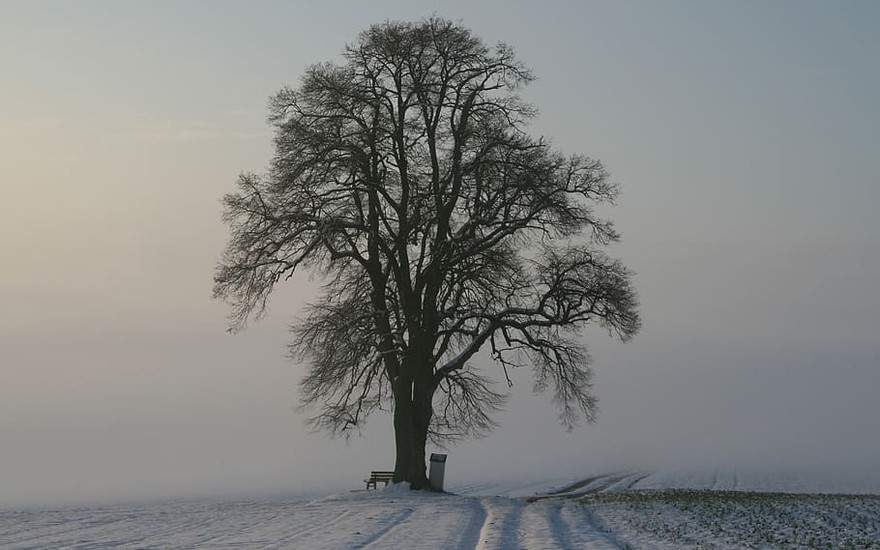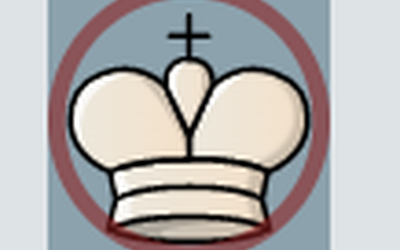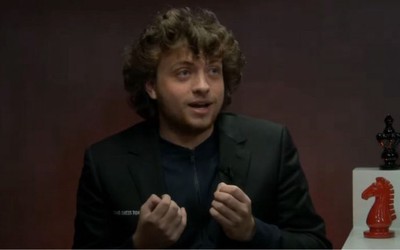
piqsels.com
Now... What Exactly is a Tree?
Looking at a tree from a new angle: A more philosphical blog for those interested - what is a tree?Yes. You read correctly. "What is a tree?", this question seems on the first thought like a stupid one to answer. But since there are no dumb questions, we might as well ask this one regardless. Afterall, what is a tree now? How do you define it? Do trees even exist? And, what can a tree teach us?
So, let's start with the definition. Seems like a good place to start, doesn't it? The only problem is... there's no universal definition of such a commonly used word as tree, well, at least not according to Wikipedia. That sucks. But let's piece together what we can find: A quick Google search reveals, that a tree is
a woody perennial plant, typically having a single stem or trunk growing to a considerable height and bearing lateral branches at some distance from the ground.
Seems about right, my most intuitive definition is that "a tree is a plant, usually high up growing, consisting of a stem, branching out into different branches where some sort of leaves grow".
Wikipedia's entry reads similarly:
In its broadest sense, a tree is any plant with the general form of an elongated stem, or trunk, which supports the photosythetic leaves or branches at some distance above the ground. Trees are also typically defined by height, with smaller plants from 0.5 to 10 m (1.6 to 32.8 ft) being called shrubs,so the minimum height of a tree is only loosely defined.
So, according to these three - broad - definitions a tree is defined by
- it's hight
- a trunk with branches
- some sort of leaves
So. Now we've got this all out of the way. But these were just very broad definitions. So, we know know what a tree is. We do not know, however, what exactly a tree is. But... it's kinda odd that if we were to go into a forest, we would know exactly which plant may be considered a tree and what a bush.
Well, to know if we exactly know we of course need to know what "knowing" and what "exactly" is. To spare you (and me, actually) unnecessary complications, we just take a look at the Wiktionary's entry for those words: For knowing I would say that...
To be [...] familiar with; to have encountered [something]
...get's the job done for us. And for exactly...
Without approximation; precisely
...will suffice. Exactly what I am talking 'bout!
But after we've found out the "meaning" behind these words, we have to ask: Are we familiar with trees? Yes, I am sure we've all encountered one, seen one, maybe even felt one too (we will come back to this later). But how can we precisely know what a tree is? Sure, we have the definition, we have the experience, but we can not be precisely sure what a tree is and what a bush is, maybe that little bush is a tree afterall?
Or even more directly: If we are made of muscles and organs, tissue, which itself is made of cells, which themselves are made of organelles and cytosol, with the cell nucleus and the chromosomes, which on an atomic level is made of atoms (what a surprise!), which are more or less comprised of an "electron cloud" and a proton, which itself is made of quarks (more or less), what is beyond that? Nothing! (Yes, technically the Plack length though I reckon we can agree that there ain't much of anything we know today, if you know what I mean.) So... physics shows us that we can't know precisely - Heisenberg proved that. Science also shows, that knowing something might not be real, though it sure feels like a Keyboard, like I am seeing a blog right now. But in reality it's all particles, in a sense, everything is nothing... Let's not think too much about this.
So, coming back to the macrocosm, leaving a whole lotta nonthingness behind, we still have to ask ourselves: What even is a tree - if we were to take a tree's definition, our experience with it and - assuming precise would be precise enough - even that variable, what is left of the poor tree? You probably are picturing a tree right now (like the one in the image up top), but try not too when I mention the word "tree". Ready? What is a tree if you take away it's defining features? No leaves, no branches, no trunk, no roots - nothing sticking out of the ground. What's left? Nothing! Nothing? I would not use such a strong word to describe our newly created "tree" (let me bet: You are still picturing a tree in your mind, aren't you?)...
On the first glance, our new "tree" has absolutely nothing in common with a usual tree - other than the name of course. But, could we consider our "tree", in the following called "anti-tree", a tree? I mean, if we were to only know it as a tree, we wouldn't call it an anti.tree, right? Anyways, our tree is - like everything else, comprised of the same "nothingness", atoms and their particles, etc., so we might say, that we would know it as much as our usual tree - that is not precisely knowing it. The anti-tree also has one more feature: It has holes! "Holes?", I hear you say? Holes! Figure this: A tree is comprised of cells (and, like discussed before, basically everything's made of nothing), and between those cells and in these cells, there are tiny, tiny holes (not noticable with the naked eye). So summarizing, our anti-tree has something in common with the normal everyday tree. Much more that we've thought.
But, (and now we take a leap of faith, away from the forest and into our mind,) if we were to not know the original tree and only know the anti-tree (confusingly under the name of a "tree"), could we have any idea what a tree really is? Maybe we are too deep into the rabbit hole, but let's go deeper: Figure the following: There is an experiment, where one generation is raised to know the anti-tree as the only existing tree. Now, everything else we know stays the same - just not that they have access to any information regarding an actual tree - they've never seen one, they've never touched one, heck, they never seen wood before! But could this generation, when it is grown up or even before, think about a normal tree? Think about it, would this be possible?
Now, I believe that it would only be possible by "accident", that is, if a lot of creativity could ever be called an accident. Of course, luck and randomness play a role too. I am interested to know what you think. But in my scenario, one goes into a "forest" of anti-trees - something that would be a plane landscape to us - and thinks: "Hmmm, these trees are beutiful, I can see the sky, and I can see the horizon. Wonder if there ever could be something obstructing my view...", goes home and thinks about a plant-like entity, with plant like properties, that could follow the laws of nature while also obstrut one's view. It is very likely, that those anti-anti-trees would look somewhat similar to our trees while also looking a lot different - maybe they would be thought as having two stems?
Anyways, to not lose my mind too much (this blog really should be take light-heartedly, I've come to notice) we will excurse on some other thing that trees usually do: Convert Co2 into O2. If we would find a tree, that is capable of producing O2, but this tree has not other characteristics of a tree, would such a tree still be a tree? "Of course not, many plant can do that. Besides, if the tree does not have the characteristics of a tree, then it ain't a tree!" - So, if our tree does not smell like a tree, does not taste like a tree and does not look like a tree, is it still a tree? I would say: It depends. But who am I to say what a tree can not do - afterall, maybe the tree has developed in a way that the tree defends itself by disguising itelf...
Nevertheless, a tree has branches. And roots. If we were to shorten the tree - like cutting out the trunk and sewing together roots and branches, would we still have a tree? No? Yes? Maybe... I mean, this Frankenstein of a tree would still resemble a tree, would still be made of the same tree and - in our thought-experiment - live like a tree. So what stops it from not beeing a tree? The trunk? But is "treedom" so closely linked to the trunk? Is the trunk the defining, the most important part of a tree?
So, we've talked about the tree. We have had a definition, that seems imperfect and we have asked what a tree might not be. But one thing we haven't asked ourselves: Is a tree alive? And, more importantly, would this mess all the previous things we've talked about up?
To assure you, yes, a tree is indeed alive (though tree's are said to not be sentient). But... you might have noticed the lack of the "being alive" or "living creature" part in the definition. Realize this: While we have somewhat defined a tree - in it's broades terms - we have not judged whether a tree must be alive or dead to be counted as a tree. The whole "leaves" part may just imply that a tree must be alive, but implying isn't exclaiming, for all I know.
A tree can - in my Opinion, at least - only be defined through one thing: "A tree is a tree". Of course, our imaginary powers seem very weak to comprehend everything, so we try to define using examples, explaining the tree while missing it in the forest of words. We simply can not grasp true treedomness, I gess. But we can think about it - and try to understand true treedomness, even if we'll never succeed.
So, the next time you see a tree, be it alive or not, think about the wonders of treedom. Thanks for reading!
Inspiration and Sources:
- CGP Grey and his "Metric Paper"
- VSauce and "How Many Holes Does a Human Have?"
- Wikipedia's Definition
- Wiktionary's Definitions
- Google's Definition
- Lichess for the ability to post a Blog
- Coffee for keeping me addicte- I mean alive and well running!
More blog posts by george_mcgeorge

The Quiet Blog
Sounds like a nice title for an album: "The Quiet Album"
Breathe!
"Breathe in the air - don't be afraid to care"
Chess pieces: The King
In this blog series (yet another new one!), we will focus on the pieces that roam the 8x8 world. And…